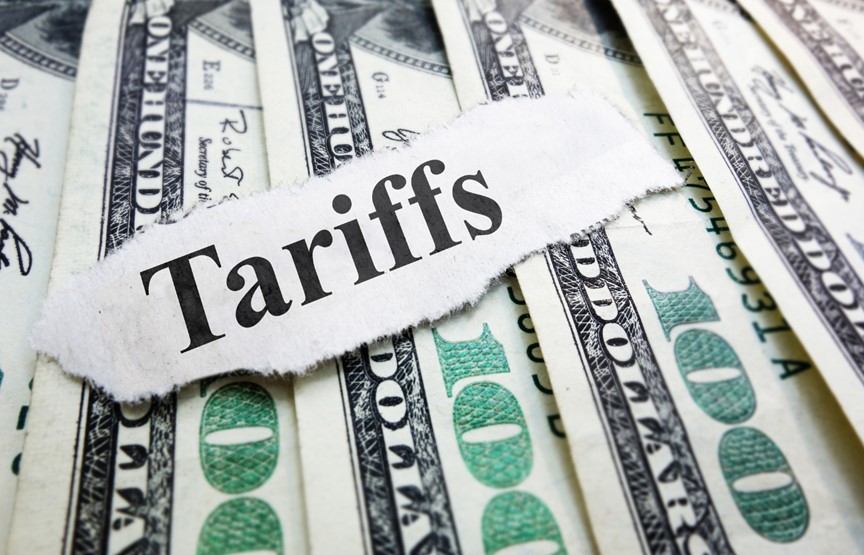

The Trump tariffs have begun, and a tit-for-tat trade war has kicked off with the USA’s biggest trading partners — Canada, Mexico and China — not expected to lay down and cop this from the new US President. But the burning question for us is, will we be negatively affected?
Be clear on this, economists have long agreed that increasing excessive protection via tariffs is an economically negative measure and since the 1980s when trade barriers were reduced worldwide, and especially here in Australia, there has been a surge in economic growth.
In fact, since the 1990 recession, Australia had a 20-year era of uninterrupted economic growth with no technical recession, which no modern economy has ever achieved. The combined effects of immigration along with an economy that had to embrace reduced trade protection and become more globally competitive, largely explained our long period of growth.
However, with trade protection, some once protected industries lose out, with Australian textiles and footwear factories a case in point and workers in these businesses lost jobs. In the US, many badly affected workers who lost their jobs because of reduced tariffs and international competition are long-term Trump supporters. That partly explains why President Trump is on his tariff crusade.
To recap, the tariffs are 25% on all goods coming from Mexico, 25% on all Canadian goods except for energy, which will be taxed at 10%, while Chinese goods will cop a 10% slug on products and even on existing tariffs!
The SMH’s Michael Koziol and Shayne Wright reminded us that the President explains these tariffs as penalties on these countries for supplying drugs, such as fentanyl to the US. There clearly are other economic and political issues, with Mexico’s complicity in allowing illegal border crossings being an enormous bone of contention for the US President.
On how we might be affected, the SMH duo reported the views of ANU economist Warwick McKibbin, who is a senior fellow at the US Brookings Institute and a former RBA board member. “Trump’s tariffs on Canada and Mexico could be a net positive for Australia, as both countries would probably send their exports to countries without hefty tariffs, potentially reducing prices for certain goods,” they reported. “But this would be completely offset by the impact of the 10 per cent tariff on China, as the demand for Australian goods and services would be likely to fall as the world’s second-largest economy slowed.”
McKibbin thinks a bigger problem could be US inflation, which would not only put upward pressure on interest rates and reduce the potential for rate cuts but also it could hurt Wall Street and then our stock market could be affected, as we historically play follow the leader with the US market.
And even bigger worry would be if more countries cop tariffs, and a global trade war eventuates. Right now, Canada has wacked a 25% tariff on $30 billion worth of US goods and soon will add another $125 billion worth of US exports. Mexico is promising to introduce retaliatory tariffs.
The SMH team looked at objective analysis of the effects of the Trump tariffs and found the following: “A briefing paper by the Tax Foundation, a non-partisan pro-business think tank based in Washington, estimated the tariffs ‘would shrink economic output by 0.4 per cent and increase taxes by $US1.2 trillion between 2025 and 2034 on a conventional basis’.”
However, President Trump told supporters before the election that the word tariff was “one of the most beautiful words in the dictionary”. And he argued that he imposed tariffs before, and inflation didn’t spike. But they were different times, so the jury is out on this subject.
A wider group of tariffs could hit Australia as we export aluminium and pharmaceuticals, however the US has a trade deficit with Canada, Mexico and China but a $40 billion trade surplus with Australia.
Stocks-wise, Rio Tinto supplies aluminium to the US and the AFR reported that “the United States accounts for $13.9 billion of Rio Tinto’s overall revenue, and aluminium sales represent $12.4 billion of the company’s revenue”, which won’t be great for the company’s share price.
In the short term, the negativity from these tariffs could have small effects but if President Trump extends his tariff plays to more countries and a global trade war results, the inflation and interest rate effects could be troubling to exporters, those who play stocks and anyone with a mortgage praying for the four rate cuts the CBA is predicting for 2025.
A tariff war could make the RBA conservative about too many rate cuts!